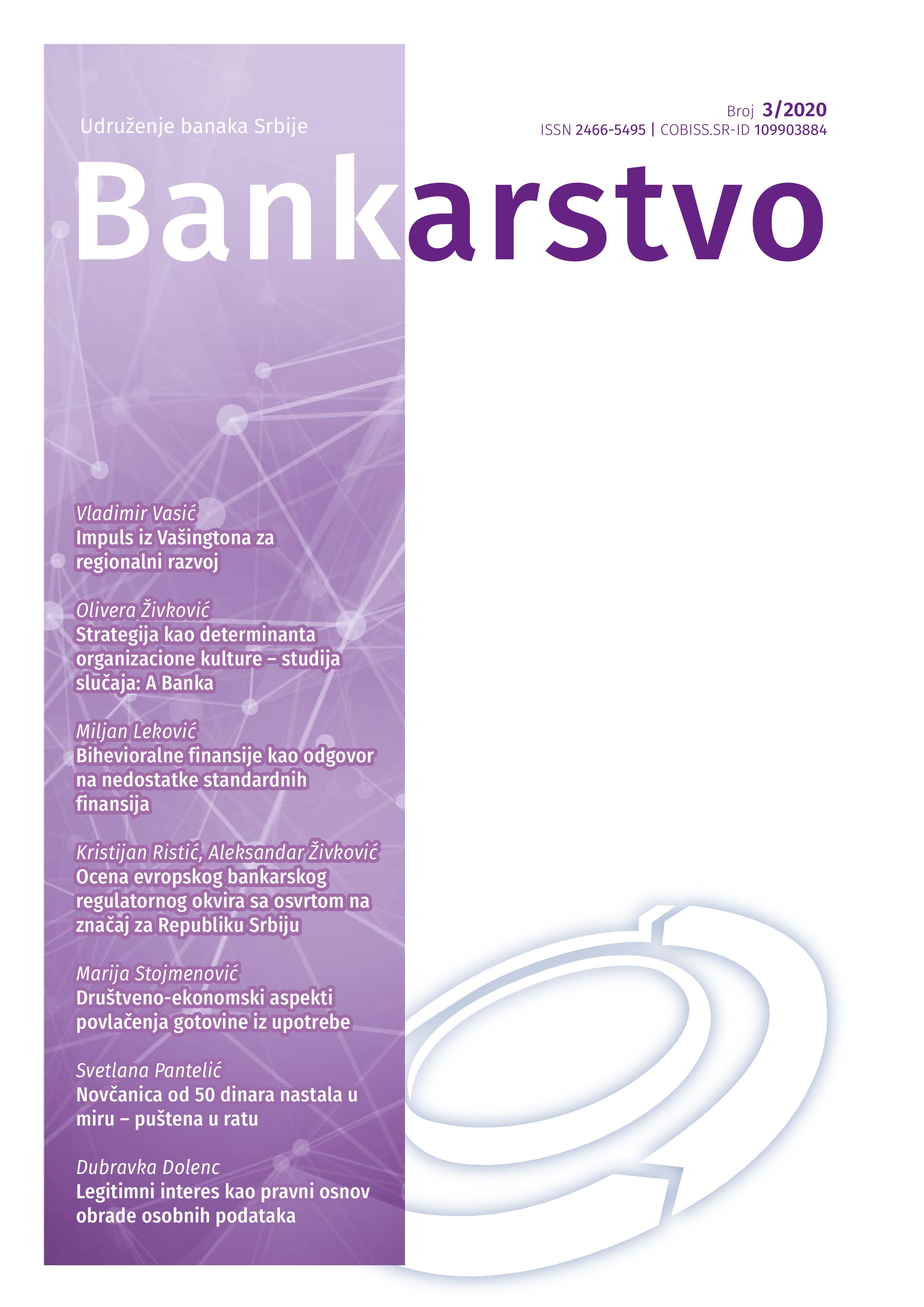Ocena evropskog bankarskog regulatornog okvira sa osvrtom na značaj za Republiku Srbiju
Assessment of the European Banking Regulatory Framework in Light of its Significance for the Republic of Serbia
Author(s): Kristijan Ristić, Aleksandar ŽivkovićSubject(s): Economy
Published by: Udruženje banaka Srbije p.u.
Keywords: EU financial regulatory measures; banking; stability;
Summary/Abstract: The notion of a cashless society is slowly becoming an inevitability of the modern way of doing business. Withdrawal of cash from use is the result of wide application of information and communication technologies. Increasing digitalization has contributed to the fact that most transactions are performed via smart devices (phones, tablets, desktops), without the use of cash and without going to the bank. The development of technological innovations, as well as innovations in finance, has undoubtedly contributed to increasing efficiency in business, but the question is whether the increasing digitalization of life and business, which is reflected in the creation of a cashless society, is still so desirable for humanity. The paper focuses on the socio-economic aspects of withdrawing cash from use. On the one hand, states are given the opportunity to influence economic activities even more directly through their central banks, while on the other hand, the issue is raised concerning human freedoms and rights in the digital world, in which it will be possible to electronically control the entire business.The debt crisis in the European Union is known to be caused by the interdependence of banking and state financial stability, and, together with the non-existence of the fiscal union, it has taken on the existential dimensions of the EU project itself. Under the guise of financial fragmentation within the financial markets of the Eurozone, and from the aspect of the outbreak of the crisis, EU member states resorted to national interventions, thus closing national banking and financial markets, which ultimately resulted in deepened and stronger structural foundation of the crisis and its economic and financial consequences. In that context, the Banking Union is the regulatory and institutional response of the EU after the global financial crisis, about which the first proposals have found a place in institutional controversies since 2012. In addition to the key moment and motive for establishing such an institutional regulatory arrangement, the reason for its creation is more to create a union that is connected with the creation of a single market for financial services and free money circulation, and certainly with the tendency of fuller monetary integration. However, certain questions which arose remained relevant to date: whether these established and instrumentalized frameworks, mechanisms and procedures are in fact sufficient; whether the EU banking union, conceptually designed, really represents banking integration; and whether the “centralized-common” and “sovereign-national” relationships continued in the EU financial architecture, the use of the principle “one measure for all” in the implementation of the Basel III, non-inclusion of all types of banks, and the conflict of emission and supervisory roles of the Central Bank, be a structural conflict in achieving the desired financial stability, which is the ultimate goal. In the broader context of the functioning of the EU, financial stability can also be interpreted as a factor in the survival of the common currency and the European Union itself, regardless of the intertwined contradictions and construction conflict. In this paper, we analyze the functional scope of the regulatory framework for banking supervision in the EU during the five-year existence to date, and finally the effects and impact that this framework has had on the regulatory adjustment of the Serbian banking sector.
Journal: Bankarstvo
- Issue Year: 49/2020
- Issue No: 3
- Page Range: 77-101
- Page Count: 25
- Language: English, Serbian

